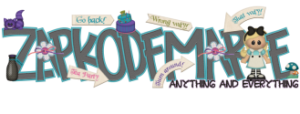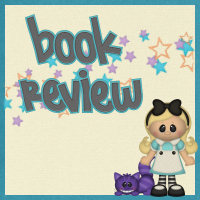{Synopsis} –Go Ask Alice was a hoax. But Dear Nobody is a true teen diary so raw and so edgy its authenticity rings off every page
“I am a freak.”
The words and drawings of Mary Rose present a gritty, powerful, no-holds-barred true experience of a teen girl so desperate to be loved, so eager to fit in that she'll go to extremes that could cost her her life.
This is not a story about addiction. Or sexual promiscuity. Or cystic fibrosis. It's the story of a young woman with a powerful will to live, who more than anything wants to be heard…and loved.
This compelling, emotional account ensures her voice will not be forgotten.
{My Thoughts} – {Though the Internet existed in 1997 when Mary Rose was in high school, it was not yet accessible to everyone. Most high school kids still wrote by long-hand, passed notes on paper, and called their friends from a landline. Parents couldn’t track you via social media. If you were walking alone, at night, in the rain, along a desolate highway, you probably didn’t have a cellphone to call for a ride home.}
Mary Rose is an interesting character. She has a way about her writing that just makes you want to instantly fall in love with her. There is no denying just how wonderful of a person she is within this book. She is more or less your typical teenage girl that has typical teen age problems. However, she also has other problems that most teenagers are not forced to deal with on a regular basis.
{And yet, the experiences and struggles that Mary Rose had are no different than the ones teenagers face today: loneliness, shame, sexual insecurity, shyness, depression, bullying, drug and alcohol problems, breakups, divorce, abuse.}
Mary Rose like many teenagers her age and going through any phase in life really just wanted to fit in. When you think about it, when do you not want to fit in, want to have friends, want to be liked by all those around you, want to know that you are accepted. She faced one of the biggest issues being an outsider was that she was too different and no one wanted to accept her for who she was.
{I follow people, hoping for affection, acceptance – a home. From clique to clique, group to group, I follow, only to be kicked aside – and at the end of the day, I am always left alone, droopy-eyed, and miserable – like a lonely, unloved puppy with its tail between its legs, and misery in its heart.}
I remember when I was in high school, grade school even. All I ever wanted to do was be accepted. I was always the oddball out in grade school because I belonged to a family that was more or less considered social outcasts in the town in which we resided. I was always made fun of and when that wasn’t the case I was blatantly ignored. When I went to high school I moved to a different town however, the same struggles occurred. I wish they hadn’t but they had, I became really shy, kept to myself, focused on homework and ignored most those around me. No one paid much attention to me and I didn’t pay much attention to them. I did become friends with this one girl and she and I are still friends to this day 15 years later.
I remember the first guy that paid attention to me as well. Like with Mary Rose and Geoff, it was a guy that was a few grades ahead of me. He paid attention to me when no one else would. I longed for that so much that accepted his affection even though it was misleading. I can relate to how Mary Rose felt when Geoff paid attention to her because that was one thing that she longed for more than anything and it was one thing she felt she deserved in life.
The one thing I cannot relate to in this book is Mary Rose’s illness. I have not dealt with a chronic illness nor do I ever wish to, but I do admire her strength throughout her entire ordeal.
{I hate sickness. If one thing in the world could be erased, I’d pick sickness. Then all the money spent on research and healthcare could be used to cure hunger and poverty. After that, it could be used by organizations that would help animals and women, children, or the defenseless. After that, it could be spent on improving the educational system. (And whatever is left over could be used for space exploration).}
Mary Rose had such an understanding of things beyond her years. She knew how things could be done and had an ideal of how to do them. I think if more people had the understandings that she did there would be fewer issues in the world we live in today.
{My friend from the hospital died today. Her name was Jennifer – and like me, she had Cystic Fibrosis, too. Jennifer looked just as healthy as me.}
I actually lost a really close friend to this a few years ago and I watched him get worse and worse. I can only imagine all the pain she went through as an individual dealing with the illness and the pain of losing her close friends.
{The average life expectancy for my type of disease is thirty two years old – and that’s if you take care of yourself, which I never do.}
I am sure she would have cared more about herself if those around her showed they cared more about her. It didn’t help that her mom put everyone before her and that her dad had walked out on her.
{With Cystic Fibrosis it’s different. You cannot run from Cystic Fibrosis. Fighting back at Cystic Fibrosis with treatments and hospitalizations is all – consuming – and in most cases – futile.}
I can understand how she could view it like that seeing as she has rarely seen anyone that was able to beat the illness. The one thing she seems to want more than anything is to be loved, to have someone love her and want her. Despite her illness she wants to be accepted and know that she matters and she doesn’t seem to get that. It’s said knowing that she didn’t get that, but she left behind these wonderful journals that showed what kind of person she was even though she was misguided and lost so often she still had a good head on her shoulders.
I do believe that even though I disagree with all the bad language in this book, many individuals could learn a thing or two from this girl. She had such an interesting outlook on life and a vibrant way of showing it in her writings. She had the ability to pull you into her world through her writing and to help you better understand her and where she was coming from as an individual that was constantly at war with herself, her body and the illness that was destroying her.
{the authors}
 {gillian mccain} – is a Canadian-born and educated writer and poet who also attended New York University. She served as editor of The Poetry Project Newsletter, and was Program co-ordinator at The Poetry Project from 1991-1994. With Legs McNeil she wrote Please Kill Me; The Uncensored History of Punk, published to enthusiastic reviews by Grove Press in June of this year. Her poetry has been published in Arshile, lingo, No Roses Review, The World, and elsewhere.
{gillian mccain} – is a Canadian-born and educated writer and poet who also attended New York University. She served as editor of The Poetry Project Newsletter, and was Program co-ordinator at The Poetry Project from 1991-1994. With Legs McNeil she wrote Please Kill Me; The Uncensored History of Punk, published to enthusiastic reviews by Grove Press in June of this year. Her poetry has been published in Arshile, lingo, No Roses Review, The World, and elsewhere.
{legs mcneil} – Roderick Edward “Legs” McNeil (b. 1956 in Cheshire, Connecticut), is the co-founder and a writer for Punk Magazine. He is also a former senior editor at Spin Magazine, and the founder and editor of Nerve magazine (print only; 1992).
At the age of 18, disgusted with the hippie movement that seemed to be going nowhere, McNeil gathered with two high school friends, John Holmstrom and Ged Dunn, and decided to create “some sort of media thing” for a living. They settled upon a magazine, assuming that people would “think [they were] cool and hang out with [them]” as well as “give [them] free drinks”. The name “Punk” was decided upon because “it seemed to sum up…everything…obnoxious, smart but not pretentious, absurd, ironic, and things that appealed to the darker side”. In Please Kill Me: The Uncensored Oral History of Punk, McNeil said that the magazine was inspired by two chief influences: Harvey Kurtzman and The Dictators’ debut album The Dictators Go Girl Crazy!, indicating that the magazine was started strictly so that its creators could “hang out with the Dictators”.
Nicknamed “Resident Punk” in the magazine, he claims (to much dispute) that he was the first person (along with co-founder John Holmstrom) to have coined the term “punk” to describe a certain type of music, fashion, and attitude. He says he came up with the name punk because Telly Savalas used the line “You lousy punk!” on the show “Kojak.” According to McNeil: “After four years of doing Punk magazine, and basically getting laughed at, suddenly everything was “punk,” so I quit the magazine.”
Final Conclusion: 5 Star Rating.

